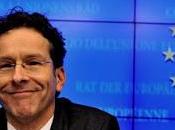Pochi giorni fa abbiamo avuto il piacere di intervistare Paolo Franceschetti, dottorando presso l'Università Ca' Foscari di Venezia e fondatore di SOLWA, una delle startup vincitrici del Grant di Working Capital - Telecom Italia.
Il progetto ha ottenuto diversi riconoscimenti nell'ultimo anno, primo fra tutti quello dell'ONU, che ha riconosciuto SOLWA come idea per lo sviluppo dell'umanità. Inoltre Paolo ha partecipato al TR35 del Technology Review Italia, pubblicato dal MIT, ed ha vinto il premio come Innovatore dell'anno 2011. [video]
SOLWA è uno strumento che serve a depurare l'acqua salata o inquinata usando solo ed esclusivamente la radiazione solare. Si tratta dunque di un prodotto che, attraverso l'evaporazione e la condensazione, permette di distillare l'acqua ed eliminare le parti inquinanti a costo praticamente zero.
L'idea è nata da una conoscenza che tutti abbiamo, ovvero quella del ciclo dell'acqua, ma la parte più difficile della sua implementazione è stato trovare delle modalità per ottimizzare questo processo aumentandone l'efficienza ed eliminare al tempo stesso il bisogno di energia elettrica o gas per alimentarlo. [video]
Inizialmente l'idea era destinata esclusivamente ai paesi in via di sviluppo come soluzione per l'acqua potabile, e infatti svariate ONG hanno chiesto dei prototipi da sperimentare. Inoltre il prodotto stesso è molto legato ai paesi in via di sviluppo per una questione climatica, in quanto ha bisogno di tanta energia solare per funzionare. Tuttavia ci sono anche diverse aziende locali interessate al procedimento di SOLWA per trasferirlo a settori differenti, in particolare per i problemi legati ai rifiuti, come ad esempio l'essiccamento dei fanghi di depurazione. [video]
 La struttura di SOLWA è molto semplice: si tratta di una serie di scambiatori di calore e una serra con vasca di contenimento all'interno della quale scorre l'acqua. L'azione combinata dell'effetto serra e degli scambiatori di calore fa sì che l'acqua arrivi rapidamente a 80° C, trasformandosi in vapore che viene poi raccolto e fatto condensare. Tutto ciò che non evapora a temperature inferiori, quindi gli elementi inquinanti, rimane sul fondo della vasca e non si ritrova nell'acqua distillata ottenuta.
La struttura di SOLWA è molto semplice: si tratta di una serie di scambiatori di calore e una serra con vasca di contenimento all'interno della quale scorre l'acqua. L'azione combinata dell'effetto serra e degli scambiatori di calore fa sì che l'acqua arrivi rapidamente a 80° C, trasformandosi in vapore che viene poi raccolto e fatto condensare. Tutto ciò che non evapora a temperature inferiori, quindi gli elementi inquinanti, rimane sul fondo della vasca e non si ritrova nell'acqua distillata ottenuta.Questo procedimento permette di eliminare i sali, i metalli pesanti e altre tipologie di inquinanti che non vanno in sospensione, con un rendimento di 10 litri/metro quadro al giorno, a costo zero. SOLWA infatti non richiede né l'uso di sostanze chimiche, normalmente usate per depurare l'acqua, né energia elettrica, e una volta acquistato permette di avere un sistema di depurazione continua. [video]
L'acqua ottenuta è acqua distillata, quindi SOLWA prevede anche un sistema di post-trattamento costituito da filtri di sali minerali che rimineralizzano l'acqua rendendola potabile. Questa soluzione viene applicata ad esempio nel caso di inquinamento batteriologico, ma nei casi di inquinamento con metalli pesanti, l'acqua inquinata viene diluita con acqua distillata fino al raggiungimento di una concentrazione idonea. [video]
Abbiamo parlato quindi dei numeri di SOLWA, delle prospettive di crescita e dei futuri sviluppi previsti per il progetto. [video]
Invito quindi tutti a visionare l'intervista, molto più ricca di dettagli e informazioni rispetto a questa mia breve sintesi.
Buona visione!
Maria Petrescu
StartupID | Paolo Franceschetti of SOLWA
A few days ago we had the pleasure of interviewing Paolo Franceschetti, researcher at the Università Ca' Foscari in Venice and founder of SOLWA, one of the startups that won the Working Capital - Telecom Italia Grant.
The project has obtained several prizes and aknowledgements last year, first of all from the UN, that has recognised SOLWA as an idea for the development of humanity. Paolo has also participated in the TR35 Technology Review Italy, published by the MIT, and has won the prize as Innovator of the Year 2011. [video]
SOLWA is a tool that can purify salty or polluted water using only solar radiation. It is a product that, through evaporation and condensation, allows to distill water and eliminate the polluting parts practically cost-free.
The idea comes from a piece of information we all have, the water cycle, but the most difficult part of its implementation was finding ways to optimize the process, increase its efficiency and eliminating the need for electricity or gas to make it work. [video]
At the beginning the idea was destined exclusively to Third World countries as a solution to produce drinkable water, and in fact several ONGs have requested prototipes to experiment with. The product itself is intrinsecally linked to Third World countries, simply for a climatic reason: it needs a lot of solar energy to function. However there are also several local companies interested in SOLWA's core procedure, with the idea of transfering it to different sectors, particularly waste management, such as drying out sewage sludge. [video]
SOLWA's structure is very simple: it is a series of heat exchangers and a hothouse with a tub inside which the water flows. The combined action of the heat exchangers and the greenhouse effect makes the water go rapidly to 80°C, turning into steam that is then condensed. Everything that doesn't evaporate at lower temperatures, so the polluting agents, stays on the bottom of the tub and is thus separated from the distilled water obtained.
This procedure allows to eliminate salts, heavy metals and other types of polluting agents that don't suspend, and it can produce up to 10 litres/square meter a day, for free. In fact SOLWA doesn't require the use of chemicals that are usually used to purify water, nor of electricity, so once it's been bought it allows to have a continuous purifying system. [video]
The water obtained is distilled water, so SOLWA also has a post-treatment system with mineral filters that make the water drinkable. This solution is usually applied in case of bacteriological pollution, but in the case of heavy metal pollution, the polluted water is just dilluted with distilled water until the concentration is safe. [video]
We also talked about SOLWA's numbers, it's growth perspectives and the future developments that are in sight for the project. [video]
I invite everyone to view the interview, much richer in detail and information than my brief synthesis.
Enjoy!
Maria Petrescu





